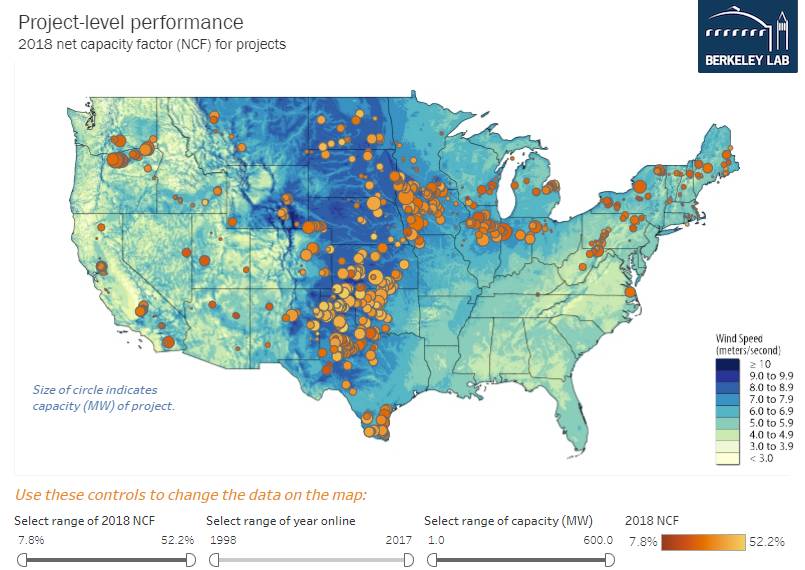
The national average price of wind power purchase agreements dropped to below 2 cents/kWh in 2018, according to the annual Wind Technologies Market Report released by the U.S. Department of Energy.
DOE says wind energy prices topped out at 7 cents/kWh for PPAs executed in 2009 and that the new low nationwide average “is dominated by projects that hail from the lowest-priced interior region of the country.” The report says these prices are possible in part due to federal tax support and that they compare favorably to the projected future fuel costs of gas-fired generation. In addition, solar PPA prices have declined precipitously, pressuring wind’s competitive position.
DOE says $11 billion was invested in new wind power plants in 2018, and wind energy contributed 6.5% of the U.S. electricity supply in 2018. It provided more than 30% in three states: Kansas, Iowa and Oklahoma.
Increased blade lengths have dramatically increased wind project capacity factors, the report says, with taller towers “on the horizon.” The average capacity factor in 2019 among projects built from 2014 through 2017 was 42%, up from an average of 31% for projects built from 2004 to 2011.
In addition, wind turbine prices have fallen to $700 to $900/kW. The average installed cost of wind projects in 2018 was $1,470/kW, down 40% since the peak in 2009-2010. Continued strong growth in wind capacity is anticipated in the near term, with forecasts of 9,000 to 12,000 MW in 2019 and 11,000 to 15,000 in 2020. Market contraction is anticipated beginning in 2021 as federal tax incentives are phased out.
The report was prepared by Lawrence Berkeley National Laboratory.





